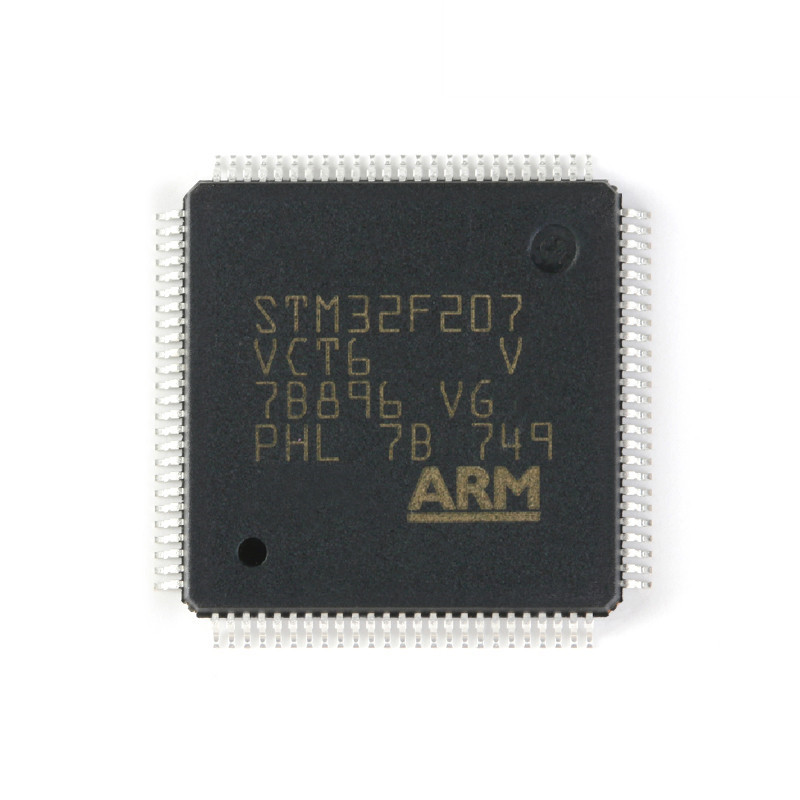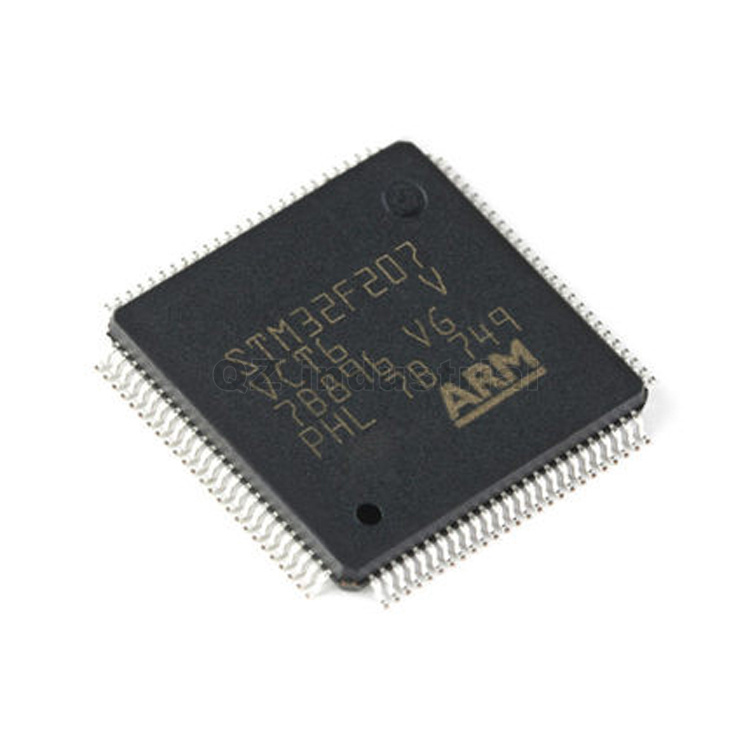Secured MCU STM32F207VC Firmware Cloning
Secured MCU STM32F207VC Firmware Cloning starts from reverse engineering stm32f207vct6 microcontroller flash memory and then copy flash file content to new stm32f207vct6 MCU;

The USB OTG HS peripheral is compliant with the USB 2.0 specification and with the OTG
1.0 specification. It has software-configurable endpoint setting and supports suspend/resume. The USB OTG full-speed controller requires a dedicated 48 MHz clock generated by a PLL connected to the HSE oscillator by unlock stm32f205rc secured microcontroller flash program. The main features are:
Combined Rx and Tx FIFO size of 1024× 35 bits with dynamic FIFO sizing
Supports the session request protocol (SRP) and host negotiation protocol (HNP)
6 bidirectional endpoints
12 host channels with periodic OUT support
Internal FS OTG PHY support
External HS or HS OTG operation supporting ULPI in SDR mode. The OTG PHY is connected to the microcontroller ULPI port through 12 signals. It can be clocked using the 60 MHz output.

Internal USB DMA
HNP/SNP/IP inside (no need for any external resistor)
For OTG/Host modes, a power switch is needed when bus-powered devices are connected
The devices feature an additional dedicated PLL for audio I2S application. It allows to achieve error-free I2S sampling clock accuracy without compromising on the CPU performance, while using USB peripherals in the process of unlocking microprocessor stm32f205re flash memory heximal.
The PLLI2S configuration can be modified to manage an I2S sample rate change without disabling the main PLL (PLL) used for CPU, USB and Ethernet interfaces.
The audio PLL can be programmed with very low error to obtain sampling rates ranging from 8 kHz to 192 kHz.
Tags: copiar Firmware Secured MCU STM32F207VC,extrair Firmware Secured MCU STM32F207VC,leia Firmware Secured MCU STM32F207VC,replicar Firmware Secured MCU STM32F207VC

